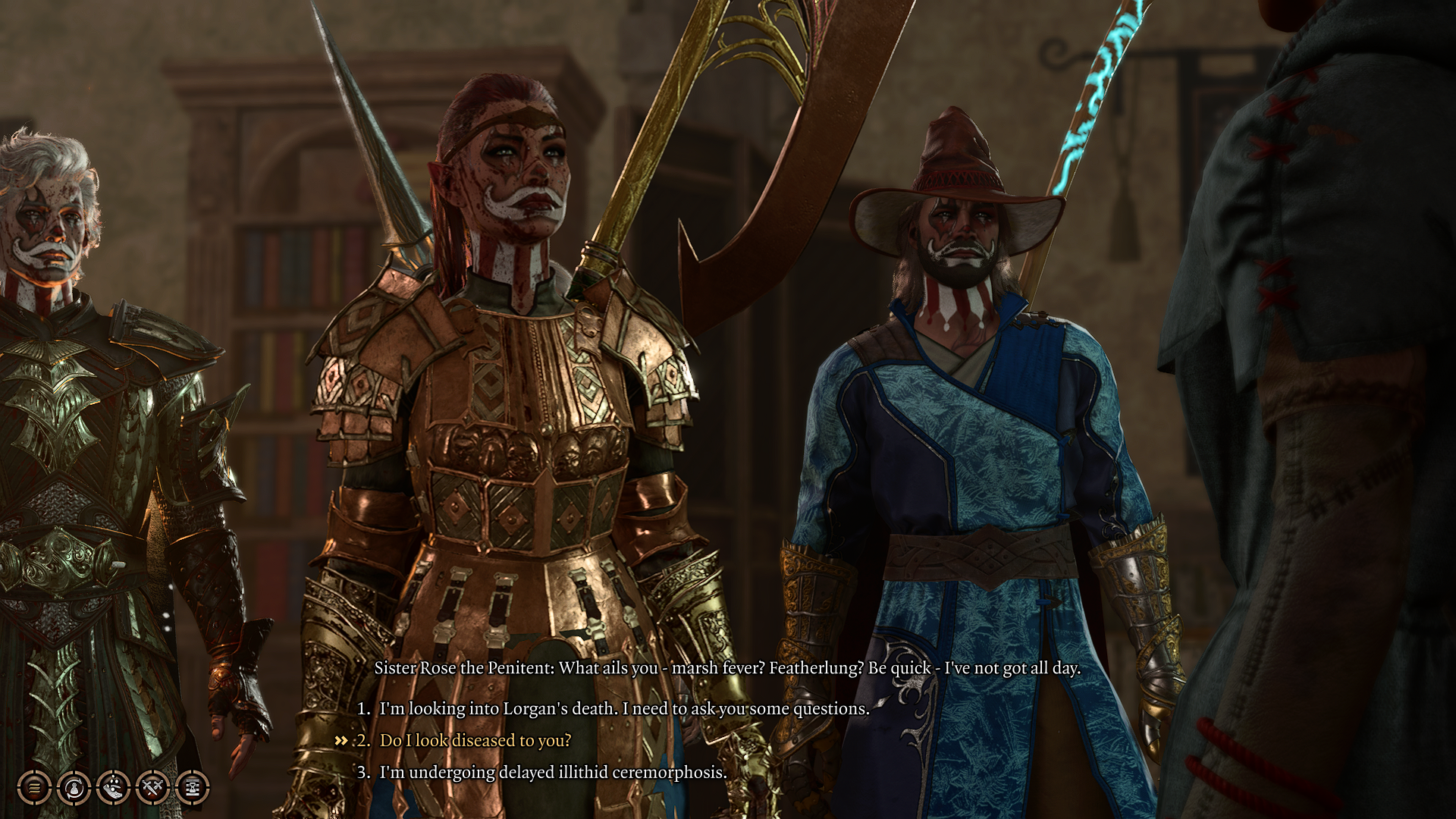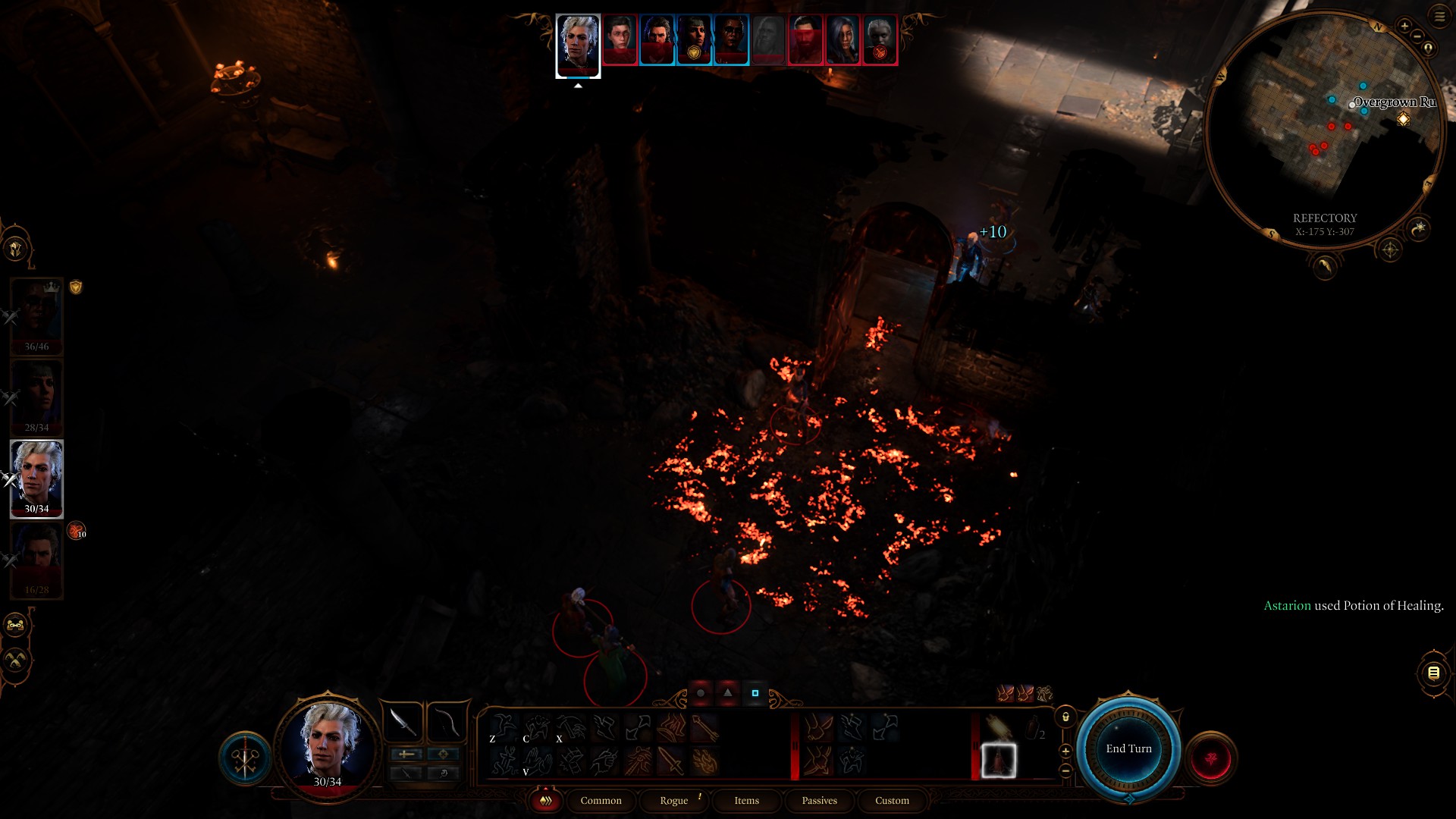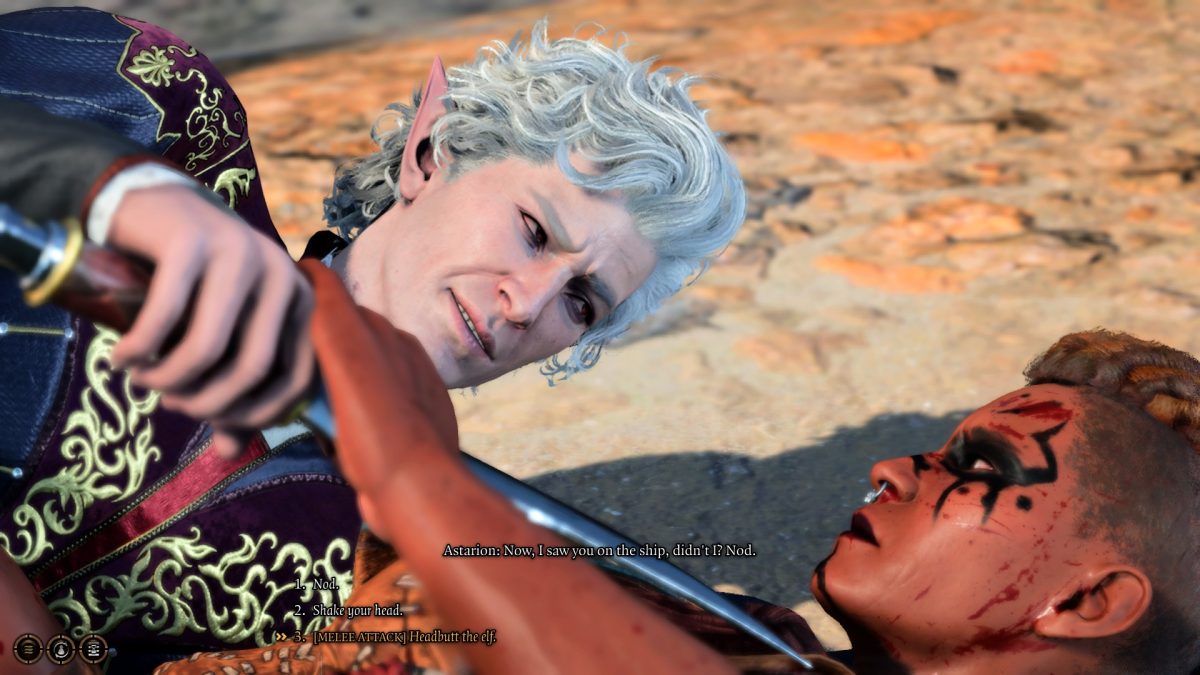It was 2020. The pandemic was in full swing, and I, like many people, was cooped up in my room for far too long. I passed the time the same way many people did: by playing video games.
I can’t remember the first time I heard about Baldur’s Gate 3 (BG3), but I was old and nerdy enough to be immediately intrigued. The game, as the title suggests, is the third installment of the Baldur’s Gate series, a collection of computer role-playing games based on the tabletop fantasy role-playing system of Dungeons & Dragons.
The original Baldur’s Gate game was published by Interplay Entertainment in 1998. The first game’s success led to a sequel and an expansion pack, and the consequent game titles were divided into two sub-series: the Bhaalspawn Saga and the Dark Alliance series. After another game series cancellation due to Interplay relinquishing the D&D PC license to Atari, Baldur’s Gate was revived in 2012 with Baldur’s Gate: Enhanced Edition, developed by Beamdog, which later made Baldur’s Gate: Siege of Dragonspear.
Nearly a decade later, development for the next game was picked up by Belgian game developer Larian Studios. Baldur’s Gate 3 (BG3) entered Steam Early Access (a game funding model that allows consumers to buy and play games during pre-release stages), encouraging participants to offer feedback in exchange for exclusive content in October 2020.
I bought it immediately and was thoroughly impressed by the quality and scope of the game, even in its early state. I was more than happy to provide ample feedback to help steer the game away from launching with significant game-breaking issues, as other gamers have seen with several AAA launches the same year.
It was officially released for PC on August 3, to critical acclaim. It reached a peak of 814,666 concurrent players on Steam the day after it launched, well exceeding expectations. The game was later released on PlayStation 5 on Sept. 6, 2023 and to the Xbox Series X/S on Dec. 7, 2023.
By the end of the year, it swept both the Game Awards 2023 (winning Best RPG, Best Multiplayer Game, Best Community Support, and the Player’s Choice category, while actor Neil Newbon won Best Performance for his role as Astarion), and the 2023 Steam Awards (winning Game of the Year and Outstanding Story-Rich Game)
After spending over 100 hours unraveling conspiracies, committing fantasy terrorism, and saving the world from a cult infecting the populace with parasitic brain worms, I can confidently say that BG3 is a once-in-a-generation game.

Don’t just take my word for it. Despite it being over six months since BG3’s debut, interest in the game remains strong, averaging more than 500,000 daily players a week just on Steam.
There has also been a steady stream of new players drawn to the game due to it unexpectedly stealing numerous awards from games with more mainstream intellectual properties.
Matcrackz, FaZe Clan content creator, was one of them. He was so certain Spider Man 2 would win Game of the Year at the 2023 Game Awards that he decided to make a live reaction on TikTok. Hundreds got to witness his shock, confusion and anger when BG3 took the coveted title instead.
“I had no idea what Baldur’s Gate 3 was. I was absolutely heartbroken and through that pain I said ‘nobody plays Baldur’s Gate 3,'” he admitted in a follow-up video.
The clip quickly went viral, garnering millions of views across multiple social media platforms. His misplaced confidence and lack of awareness about the game were met with ridicule from viewers, which eventually led him to try the game out himself.
It changed him in ways he could never have anticipated.
“I have to say this, the Baldur’s Gate 3 community has been so amazing. You don’t understand,” he said in the video. “My first stream playing Baldur’s Gate 3, I had like 200 viewers on Twitch and like a thousand viewers on TikTok. I’ve never been shown that much support playing any sort of video game.”
The game also led him to broaden his horizons, trying more games that focus on narrative storytelling.
“This game has absolutely changed me as a person, as a streamer, as a content creator because I’ve actually expanded my taste, and I’ve tried a game that I never thought I would,” he said. “I’ve actually made a list of games that I should try.”
In contrast, Bethesda’s hotly-anticipated space shooter Starfield, which was released shortly after BG3, is getting played less than Skyrim, a title released in 2011. It’s clear that BG3 has struck a chord with many players in a way that few games do.
The biggest reason is the most obvious one: it’s fun to play and hard to put down once you get hooked. Despite gameplay being centered around Dungeon & Dragons mechanics, the game’s slower pacing and various difficulty levels make it easy for newcomers to acclimate. Additionally, the game doesn’t require players to have prior knowledge about the first game in order to settle in and enjoy the experience. It offers all the recognizable fantasy staples: dragons, elves, wizards, looming, apocalyptic doom and magic.
While that’s all there, it also goes beyond simply drawing from classic fantasy tropes. It’s an addictive stew of expert cinematic storytelling, uninhibited sandbox mayhem and tabletop role-playing.
Due to the game’s absurd amount of interactivity, players have invented challenge runs such as trying to beat the game as a hamster or trying to beat it using only salami. It is a game that can give you both the story depth of “Lord of the Rings,” and the silliness of “Monty Python and the Holy Grail.”
The story spans three acts, taking around 40 hours to complete each. It begins as you awaken on a nautiloid (an alien vessel piloted by Cthulhu-like humanoid squids called mind flayers) infected with one of their tadpoles. After crash-landing on a beach, the player’s initial task is to find a way to extract the parasite from the character’s skull before they transform into a gnarly mind flayer themselves.
Along the way, players meet a motley crew of companions throughout the campaign who are in the same predicament as them. Among them is an upbeat devil barbarian with an infernal engine for a heart, a sardonic cleric devoted to her dark goddess, an egotistical wizard with an affliction that demands you feed him magical items (that you’ll naturally want to hoard for yourself), a vain vampire elf with a flair for the dramatic and many others. Together, players save or doom entire societies, forge alliances with the various factions within them and gather allies as they journey toward the legendary city of Baldur’s Gate, where their — and the world’s — salvation awaits.
How you design your character determines how the world reacts to players and what dialogue choices are available when they engage with its inhabitants. Being a barbarian grants more chances to intimidate and break things, while as a rogue, thievery and deception become a weapon of choice.
Most encounters can be avoided through charm and sneakiness, but players are bound to run into combat eventually. It’s turn-based, with each character rolling for initiative and then taking their turn accordingly. The environment can be strategically leveraged: oil or booze barrels can be ignited, enemies can be shoved off cliffs, bottlenecks can be created using doors and corridors to prevent being overwhelmed, and players can stack crates and jump off them to flatten enemies before they react.
Spells offer creative combinations, causing enemies to slip, become entangled, get electrocuted, among countless other possibilities.

BG3 also sounds amazing. Beyond the stellar soundtrack, the vocal performances include heavyweights like Jason Isaacs of “Harry Potter” fame, J.K. Simmons, who voiced two versions of J. Jonah Jameson in the “Spider-Man” films, Maggie Robertson, known for her role as Lady Dimitrescu in Resident Evil, Matt Mercer, the Dungeon Master of the popular “Critical Role” web series and Redd Pepper, who reprised his role from the first game. Even the narrator, Amelia Tyler, feels like a character in her own right as she tells the playable character’s story.
The journey is long but so rewarding that as I approached the final stages of Act 3, I dreaded its inevitable end. Discovering that the main antagonist did not sit idle while I plotted against them, thus thwarting my hopes for a perfect ending. However, reuniting with characters I helped 50 hours ago helped soften the blow.
Perhaps BG3’s success shouldn’t have been as surprising as it was. Unlike many AAA game studios, Larian Studios operates independently, granting them creative freedom to take risks and prioritize their vision without the financial constraints bigger studios suffer from. This may explain how they were able to make the game resonate with players who may not typically engage with the genre.
I look forward to my next playthrough, where I’ll have the opportunity to rectify the morally ambiguous decisions I made during my initial journey and explore the myriad difficulty levels the game offers. It promises to remain my biggest time sink for months, if not years, to come.




